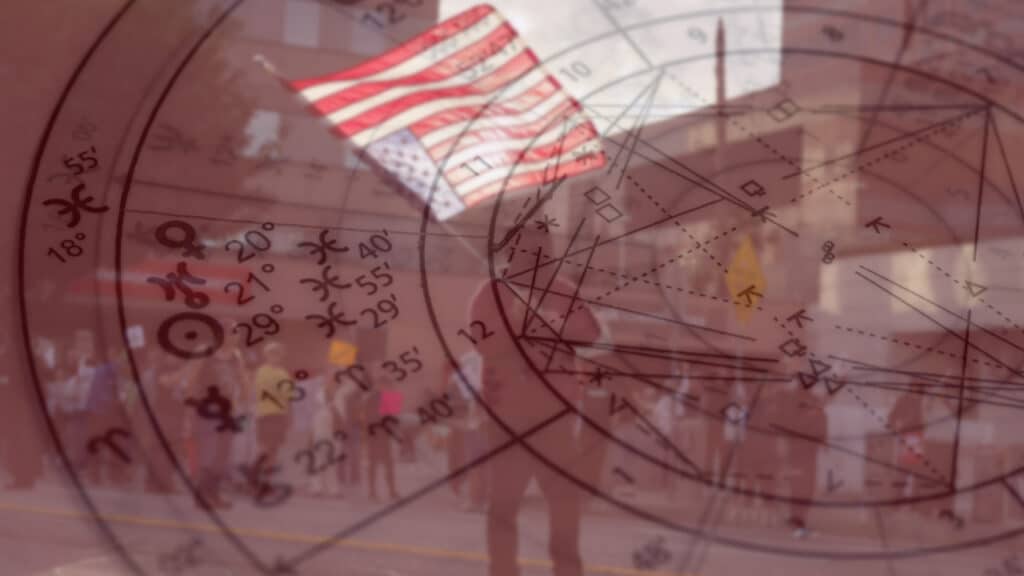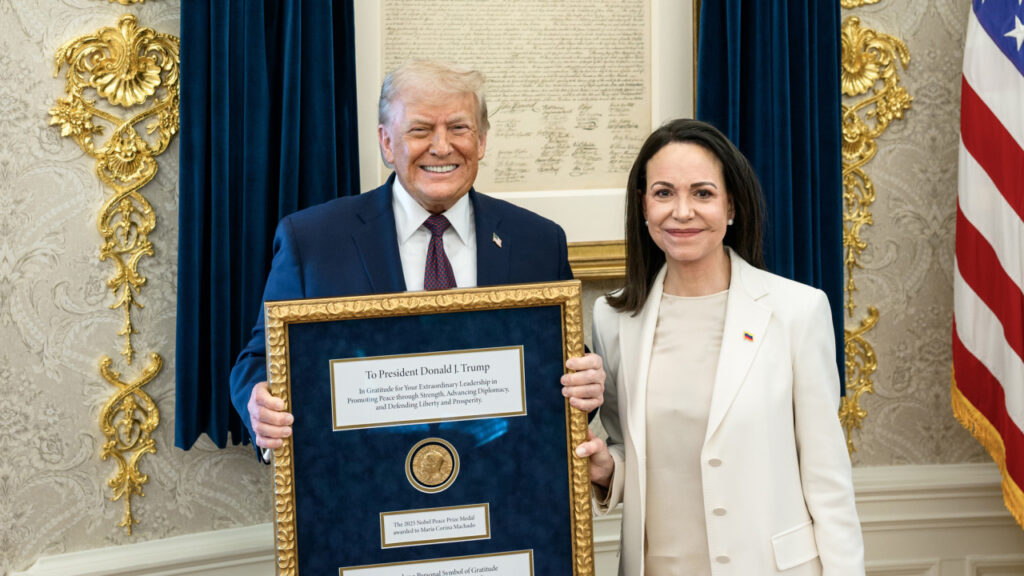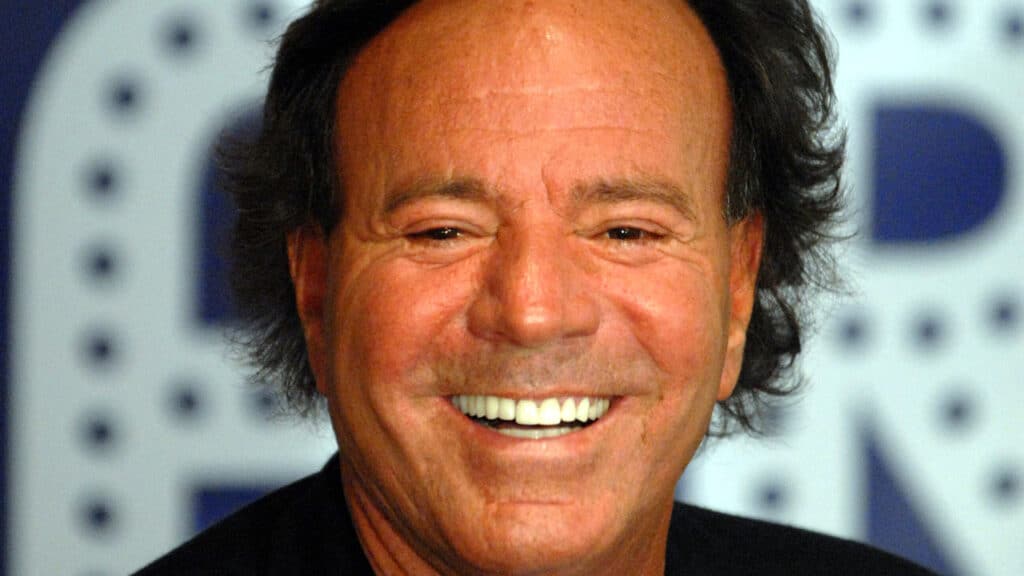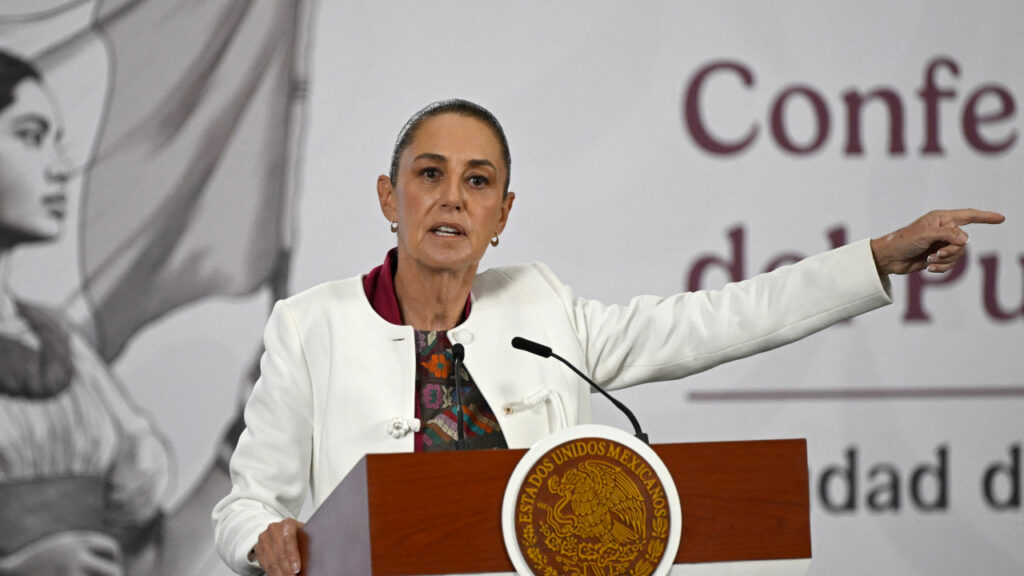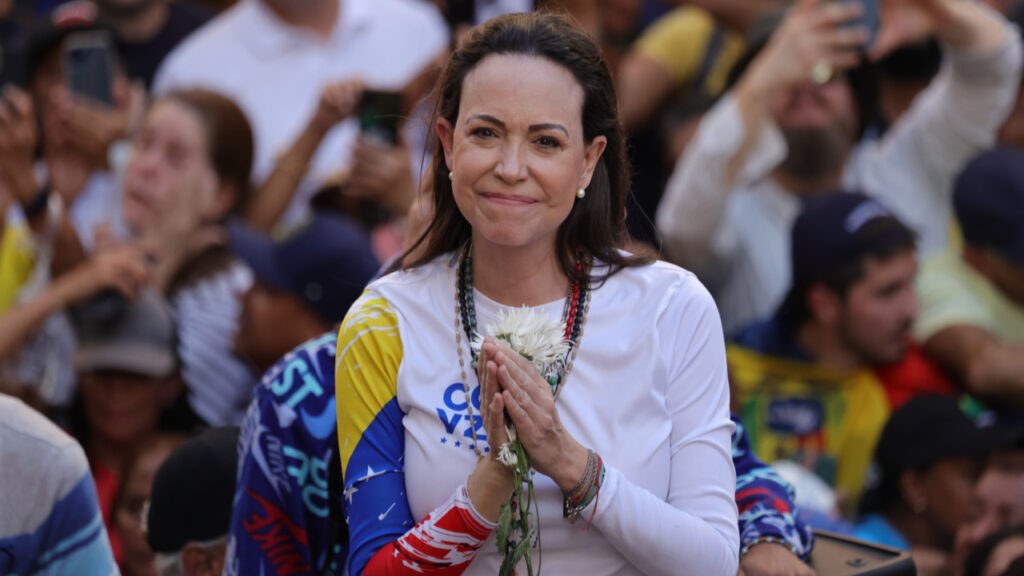
María Corina Machado Wins the 2025 Nobel Peace Prize, And the Timing Says Everything
When news broke from Oslo that Venezuelan opposition leader María Corina Machado had won the 2025 Nobel Peace Prize, it felt seismic.
A Latina in hiding, hunted by her government, just took the world’s highest peace honor, the same prize Donald Trump has publicly begged for.
The Norwegian Nobel Committee awarded Machado for “her struggle to achieve a just and peaceful transition from dictatorship to democracy.” It called her work “one of the most extraordinary examples of civilian courage in Latin America in recent times.”
Machado, 58, learned the news in hiding. In a video shared by the Nobel Prize organization, she looks stunned, repeating: “Oh my God, I have no words. I am just one person. I certainly do not deserve this. This is the achievement of a whole society.”
María Corina Machado and the Flame of Democracy in Venezuela
For years, Machado has fought to restore democracy in Venezuela, even as President Nicolás Maduro tightened his authoritarian grip.
The Nobel Committee praised her for “keeping the flame of democracy burning amidst a growing darkness.”
Born in Caracas in 1967, Machado is an industrial engineer and the founder of the Vente Venezuela party. She’s been shot at, charged with treason, and expelled from the National Assembly. Still, she never left the country, even after being banned from running for president.
Last year, she backed opposition candidate Edmundo González Urrutia, whom the international community widely agreed had won the July 2024 election. But Venezuela’s National Electoral Council declared Maduro victorious, a move Human Rights Watch described as “widespread human rights violations against protesters, bystanders, opposition leaders, and critics.”
By August 2024, Machado went into hiding after surviving an attempted arrest. Yet, as she told NPR last year, “I trust the Venezuelan people, and I have no doubt that the result of our fight will be the liberation of Venezuela.”
A Latina Nobel Laureate in a Time of Global Authoritarianism
Nobel Committee chair Jørgen Watne Frydnes framed the award as both local and universal.
“Democracy is a precondition for lasting peace,” he said. “However, we live in a world where democracy is in retreat.”
That line resonated far beyond Venezuela. The Peace Research Institute Oslo described Machado’s award as “a prize for democracy,” adding that it highlights “the courage of those who defend freedom with ballots, not bullets.”
Only 20 women have ever won the Nobel Peace Prize, and only one other Latina, Guatemalan activist Rigoberta Menchú Tum, in 1992.
In a year when global strongmen are back in power and women’s rights are being rolled back, Machado’s win feels symbolic: a reminder that Latina leadership still stands for courage, reform, and resistance.
Trump Wanted the Prize. María Corina Machado Earned It.
The decision came amid speculation that President Donald Trump might win the award for negotiating a ceasefire in Gaza. According to The Hill, Trump had lobbied aggressively for months, telling audiences, “Everyone says I should get the Nobel Peace Prize.”
But the Nobel Committee had already made its decision earlier in the week. “We base our decision only on the work and the will of Alfred Nobel,” Frydnes told reporters.
White House spokesperson Steven Cheung later accused the committee of placing “politics over peace,” writing on X that Trump “has the heart of a humanitarian.”
Meanwhile, the woman Trump once praised for “decisive action toward freedom in Venezuela” became the one to take the award he craved.
María Corina Machado’s Fight Isn’t Over
Machado’s Nobel win is a historic victory, but it doesn’t mean she’s safe. She remains in hiding, cut off from her three children who live abroad for their own protection.
The committee said it hoped “the prize will support her cause and not limit it,” acknowledging that Machado faces serious threats to her life.
Her closest ally, González, celebrated the news in a video call, saying: “It’s a very well-deserved recognition for the long fight of a woman and of a whole people for our freedom and democracy.”
For now, her words echo through a nation still under repression: “We are not there yet. We are working very hard to achieve it, and I’m certain we will prevail.”

